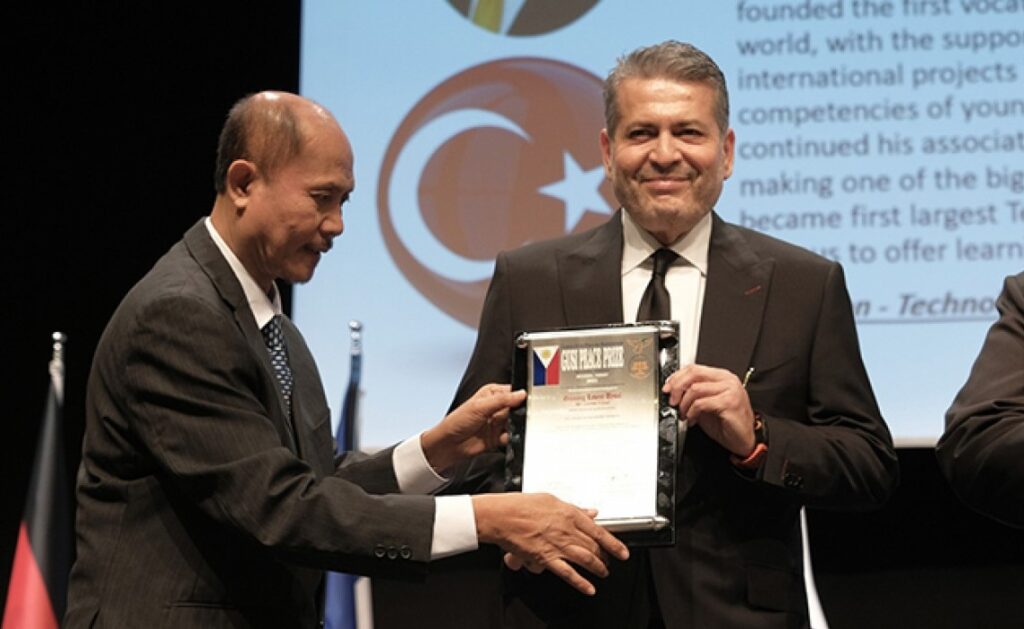While the world is in constant change and development, the education system and understanding have unfortunately not changed much in the last centuries. This leads to a lack of education in preparing individuals for their after-school lives. Curricula and learning styles also remain uniform and boring; instead of considering the differences of individuals, it leads to uniformity; teacher is the basis of learning, and the competence and knowledge of the student cannot be measured exactly.
To make education more effective; To raise qualified individuals who can see the problems of the future and produce solutions for them; To be able to catch the change and more importantly, to manage the change requires starting to change the understanding of education. To make this change happen, we must be able to put love of learning and teaching learning to the foundation of education. So, not just giving the information and asking for memorization; show the student the importance of curiosity and knowledge; should give the love and motive to know; We must instill the awareness of how to search and find information, how to understand if it is true when he reaches the information, then what he can do and what to do with this information; the school and the curriculum are not enough; We must understand and explain that learning takes place at any time, anywhere.
Apart from these, we must integrate the learning environment with innovations and improve the learning experience. We should make learning fun and interesting, we should be able to differentiate it, we should be able to use the method of gamification, and we should evolve measurement and evaluation to measure real learning rather than memorization. Technology will be the biggest help for this.
So what will be the dynamics of this future education, how will the system change? First, differentiation in the education of the future, the time and place of learning cannot be avoided. In other words, students will be able to learn in places and times they choose according to their own learning patterns. Online learning is what will make this real. As a result, the student will be able to learn at their own pace, whenever they want. Our understanding of the classroom will change and as we begin to learn outside the theoretical classroom; In the classroom, the main thing taught face to face will be practice.
Second, personalized learning will become important. Students will recognize themselves and their learning methods and will be trained accordingly according to the learning method arranged for them. There will be levels of learning and students will be able to progress at these levels as they learn. If they find it difficult to pass the level, they will be allowed to work and repeat as necessary to correct their shortcomings. In other words, they will not fit in general, the level will not only be measured by passing the grade, the progress will be personalized and the education process will suit them. Thanks to this personalization; Students will not compare themselves to others and will not be overwhelmed by others, will not fall into the thoughts of failure and lack self-confidence. Technology, especially artificial intelligence, opens the door for this.
Third, students will have the freedom to choose their own means. Students will be able to discover and use the tools necessary for their personalized learning process. During this process, they will also learn to learn and enjoy learning. They will be able to create their own learning models, rather than a uniform learning system that doesn’t interest them. This is a method used internationally with projects such as “blended learning”, “BYOD (Bring Your Own Device)” and “flipped classrooms”.
Fourth: project based grading system. Now instead of memorization, students’ learning will be measured through projects, and artificial intelligence paves the way for this. The importance of this is; Nobody is subject to written exams when they start working, exams consist of projects; Dynamics such as how successfully people perform the assigned tasks, how they conduct research and put forward this research, how they are a part of the group in case of a group project or how they manage the group are much more important than exam scores. So why not learn these abilities at school!
Fifth, especially with the rapid development of technology; Processing data will become more important than collecting data. That is not to memorize information, but to understand this information and to know how to use it. One of the most curious and worrying problems today is whether technology will take away from our professions. As technology develops, it cannot be avoided that it performs some tasks more efficiently than we do, so instead of worrying about our professions, we must transform and improve our professions. Processing data is one of the biggest examples of this, technology can now collect and store countless data in seconds. If we do not learn and teach how to read and use this data, one of the most important faculties of the future will be missing.
Sixth, and perhaps most importantly: the complete change of teacher and student tasks. The teacher will cease to be an authority figure and a giver of information, but simply an observer. It will show students ways to research, learn and produce. The student will realize the learning by his / her own method, so that learning will cease to depend on the teacher and the class, and become dependent on the individual; Students will be able to learn freely and, in this process, also discover topics that interest them and they are prone to. In this way, learning will be continuously realized and enjoyable without interruption. In addition, the student will get to know himself.
In short, this change; It is not that the student is trying to adapt to the school; It will be with the transition to a structure in which learning adapts to each student in a personally differentiated system; learning will become personalized and student-based; the student will have more say in the curriculum and will be able to discover themselves.
Finally; imagination will come into play rather than memorization. Thanks to the technology in the classroom and project environment, it will be possible to access all information with a single click and the most important thing will be what can be done with that information rather than accessing information.
In order to follow this change, not to fall behind and manage innovations; We must renew our education system, teach the future, and make it adaptable to the future. The way to do this is to take technology into our classrooms, to teach learning, to reconstruct measurement and evaluation, to put the student in the center and to observe the differences of students.






